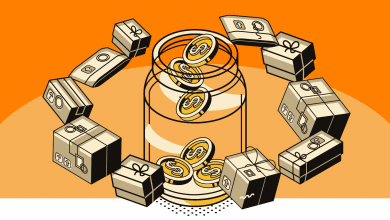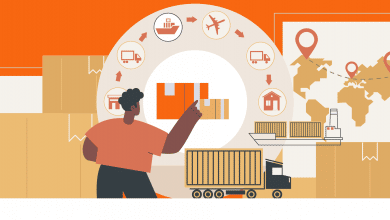The Impact of Trump’s Election on Importers from China
My apologies for not updating the site in over a month – I have some big news that has been occupying most of my time over the last several weeks which I'll be sharing in a multi-part post in the coming weeks.
It has been nearly two weeks since the huuugeee news that has been occupying every news station, radio talk show, and blog across the world – Donald Trump's election. It seems everyone believes Trump's election will affect them in some way. Most of these beliefs may well be unfounded but for us importers from China, it's almost certain Trump's election will have some impact on us. How exactly will those changes impact us? Here's how.
What Did Trump Promise?
Trump promised a lot of things in relation to China during his candidacy but the two biggies are as follows:
- A promise to label China a currency manipulator.
- A promise to raise tariffs on China.
Lets review the potential impact of each of these two things as well as the likelihood either of these things will be implemented.
Labeling China a Currency Manipulator
One of the corner stones of Donald Trump’s campaign was to label China a Currency Manipulator on Day 1 in Office.
Calling China a currency manipulator is a really easy point to argue because China’s currency is really hard to understand. China’s currency used to be fixed to the U.S. Dollar opposed to a free floating currency like many of us in Western nations are used to. Now it’s allowed to float in a box with upper and lower limits (called a managed floating exchange rate). Compound this complexity with a large devaluation of the Yuan in 2015 and it’s easy to make the assertion China is a “currency manipulator”.
Is China a currency manipulator? I have no idea and it appears there’s little consensus about whether it is or not (the U.S. treasury, under Obama, declared China was NOT a manipulator). It appears that many experts feel that the Chinese RMB is probably within 10% of its ‘true value’. And plus, if China is a currency manipulator, what is the U.S. every time U.S. Federal Reserve chairwoman Janet Yellen decides to leave U.S. interest rates untouched?
Whether or not China is a currency manipulator is largely irrelevant and likely won’t stop Trump from following through with his promise. It’s a fairly common promise U.S. politician’s make- Mitt Romney promised to do it in 2012 and Bill Clinton actually did it in 1992. Why? Because while calling China a currency manipulator sounds like a bold and aggressive label to give, it’s really symbolic and all it does is open the table for negotiations with uncertain outcomes.

If China is labeled a currency manipulator, the Treasury says Trump can “take action to initiate negotiations … for the purpose of ensuring that such countries regularly and promptly adjust the rate of exchange.” And assuming Trump doesn’t pull the U.S. out of the WTO (which he almost certainly won’t do) these negotiations will be done through them, and it’ll potentially take years to negotiate with an uncertain outcome.
Imposing a 35% Tariff
The other thing Donald Trump promised to do during the election was impose a 35% tariff on China. However, on Trump's website, this promise has disappeared from his Trade Policy page and been replaced with a much weaker promise of “Instruct[ing] the U.S. Trade Representative to bring trade cases against China, both in this country and at the WTO”.
His promise to bring trade cases against China to the WTO is completely political smoke blowing. The United States has dozens of trade cases open in the WTO with many countries including China, Canada, Indonesia, the EU, Mexico, Japan, Romania, Brazil, and more. These trade cases are generally targeted at certain categories of products rather than some massive generalization of all products from a country. Trump likely will follow through on his promise to open up a few more trade cases with China which will almost certainly be responded to by China opening up their own.
Which brings us to his over-inflated promise to impose a 35% tariff on imports. Trump knows this is next to impossible to do and hence, in my opinion, the fact he's been silent on the issue since being elected. Why? It largely comes down to the United States' obligation under the WTO. Under the WTO you basically have three categories of countries: countries with free trade agreements (i.e. NAFTA), Most Favored Nations, and “naughty nations” (only North Korea and Cuba). China, and most countries, is a “Most Favored Nation” and it is next to impossible to label it other wise. Under this classification a “country which is the recipient of this treatment must, nominally, receive equal trade advantages as the “most favoured nation” by the country granting such treatment“. This means tariffs are applied equally to all Most Favored Nations with a few exceptions.

This means Donald Trump has two options. One, he can pull out of the WTO. Incredibly unlikely. Or two, Trump can single out certain products for ‘anti-dumping duties' (essentially goods which are deliberately sold cheaply from another country). The latter can be fairly easy to do and it happens quite frequently. The problem is it will almost certainly spark a trade war like it did when the U.S. imposed higher tariffs on solar panels from China. It will also only target certain products and it's unlikely to have any impact on U.S. jobs (in fact it will likely hurt many of Trump's most die hard supporters, such as those in agriculture which have big exports to China).
So What Will Trump Do? My Predictions.
Here's my predictions for what will happen.
First, Trump will declare China a currency manipulator. The U.S. and China will enter into some negotiations, Beijing will allow some very little appreciation of its currency in return for some other concession from the U.S.
Second, Trump will open a few cases against China with the WTO for certain products. He'll likely target products relatively inconsequential to China and China will do the same in return but they'll avoid an all out trade war. Trump will be able to declare that he opened up more cases against China than any other U.S. president but the consequences will be negligible.
Third, Trump will not pull out of the WTO. U.S. markets have received a considerable ‘Trump Bump' since his election. If he pulled the U.S. out of the WTO the U.S. could flirt with another recession.
Fourth, Trump will renegotiate other free trade deals like NAFTA but China has none. Opening existing trade deals is a much easier task than dealing with the WTO and the limits it imposes. Countries with free trade agreements with the U.S., specifically NAFTA, are at considerable risk but China, for better or worse, has no free trade deal with the U.S.
Conclusion
So there are my predictions for what a Trump presidency means for China and importers from China. Trump's rhetoric against China sounds harsh. But that rhetoric is relatively inconsequential and he probably can follow through with a lot of it without changing the status quo with China all that much.
What are your thoughts? Will Trump truly ‘get tough' on China? Or is it all fluff? Share your thoughts in the comments below.



